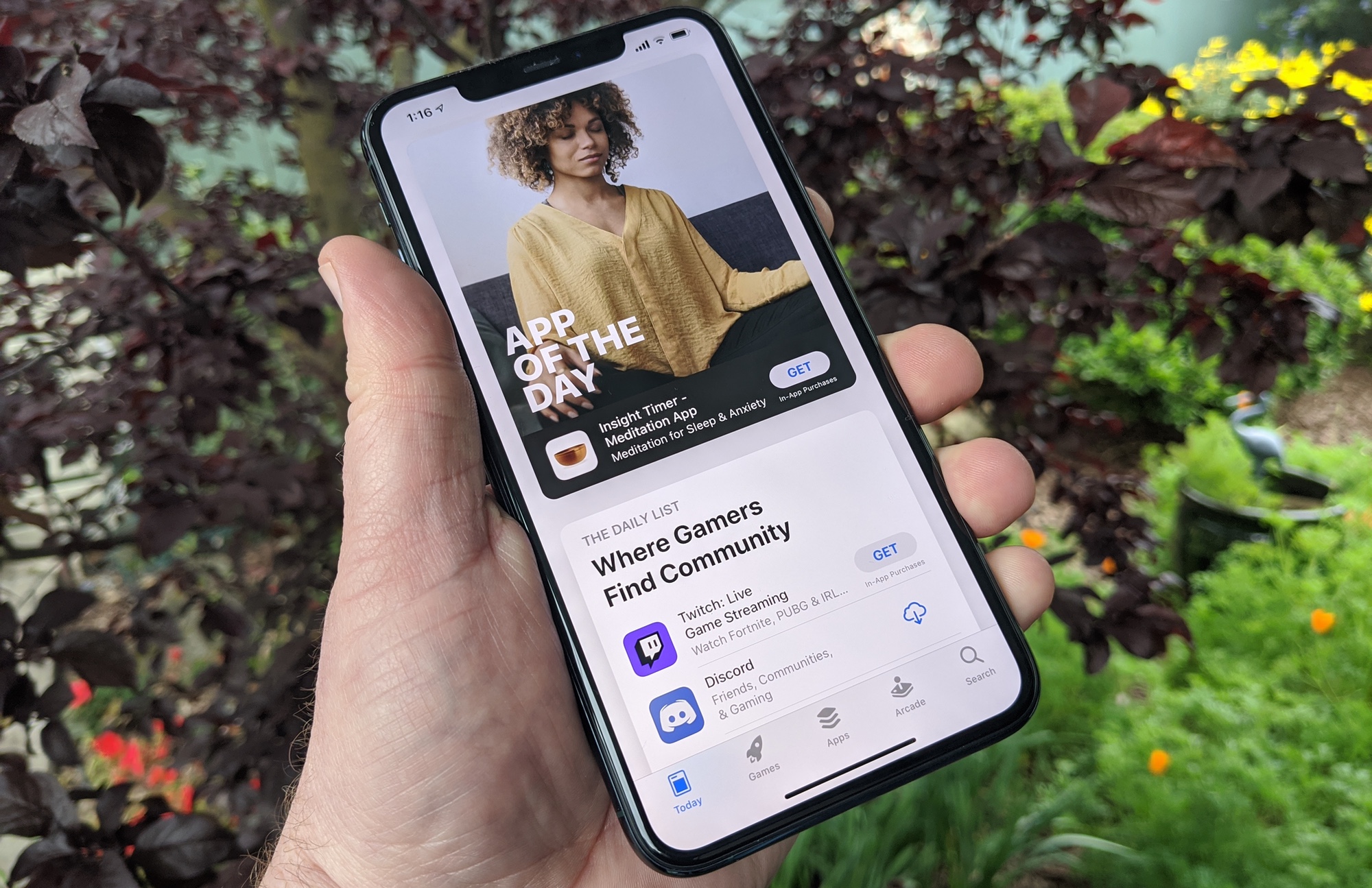Scam apps reportedly hit Apple App Store — what to avoid
The App Store isn't as safe as once thought, here's why

One argument you’ll hear in favor of Apple’s closed ecosystem is that it's better able to control what hits the App Store. That means you’re not going to find as much spam or potentially harmful content. At least, not at the same level as somewhere such as Google Play.
It seems not even Apple can catch everything. One developer has started criticizing the company for being lax with the rules, which, he claims, are letting scam apps run wild on the platform.
- Everything we know about the iPhone 13
- MacBook Pro with M1 review: Peak MacBook
- Plus: MacBook Pro 2021 leak just revealed a big design overhaul
Kosta Eleftheriou, developer of FlickType Watch Keyboard, recently posted a Twitter thread detailing how these scams work. It essentially boils down to apps that start billing outrageous recurring costs, with one example pulling in $10 a week from each user.
Up to now, I've been in the "Apple *wants* to do the right thing" camp. My viewpoint is starting to change.How to spot a $5M/year scam on the @AppStore, in 5 minutes flat:👇February 6, 2021
Apparently these apps have been flying under the radar thanks to a system of fake reviews, which lull people into a false sense of security. As Eleftheriou goes over in his thread, checking the one star reviews paints a more accurate picture of what’s going on. Namely, users who were caught up in the scam trying to warn others from ending up in the same situation.
Speaking to The Verge, Eleftheriou said it’s not just one single aspect of the problem that has him concerned. It’s the fact that it all stems from what he refers to as inconsistently enforced App Store rules and lazy moderation. And it’s all been made worse by a broken algorithm that helps scam apps appear higher than genuine apps made by smaller teams.
It’s made worse by the fact many of these scam apps use assets or promotional material from genuine apps. In a separate Twitter thread, he discusses his issues with a “practically unusable” Apple Watch keyboard app that was competing with his own. Despite not actually working, the App charges $416 a year and uses Eleftheriou’s promotional video to market itself.
The App Store has a big problem👇You: an honest developer, working hard to improve your IAP conversions.Your competitor: a $2M/year scam running rampant.1/🧵January 31, 2021
Eleftheriou also claims Apple is only concerned by issues that get media attention, like the ongoing dispute between Apple and Fortnite developer Epic Games. Evidently Apple has removed some of the apps Eleftheriou has been complaining about, though the publishers are still able to post new software to the app store. Essentially making the original takedown a futile gesture.
Get instant access to breaking news, the hottest reviews, great deals and helpful tips.
App Store scam apps - how to stay safe
Obviously, nobody wants to be on the hook for hundreds or thousands of dollars. The way to avoid being hit by this sort of scam is to identify these apps before downloading. If you see an intriguing app from a developer you don’t recognize, be sure to check the reviews.
Not just the four or five star reviews, which may well be fake, check the one and two star reviews and see what other people have been saying. If there’s mention of any hidden fees or subscriptions, make sure to avoid it at all costs.
If you do download an app, scams will often ask you to “unlock”, “activate” or some other variation of those words before you can actually use it. Often these apps won’t make any mention of money, or subscriptions by this point, only a blank screen with the confirmation button.
Some will tell you exactly what you need to pay, but still won’t let you access the app’s features unless you agree to subscribe. After you subscribe, you’ll find that it doesn’t work as promised. If in doubt, uninstall and stay well away.
Likewise, if it asks you to pay money without a free trial, you should definitely avoid it. This is assuming you’re using an app from an unknown developer and not one from an established service, like Netflix, which stopped offering free trials some time ago. Never assume that just because an app store page doesn’t mention extra fees, it means that there won’t be any.
Finally always keep an eye on your credit card bill, and flag any suspicious activity. It’s good financial sense to be doing this anyway, but with people being tricked into these expensive recurring payments, it’s an extra precaution. That way if you do get caught out, you’ll spot something is up right away. You may even be able to get a refund by reporting it to your card provider.
The most important thing is to be vigilant, even with developers you think you can trust. And remember the old saying, if it looks too good to be true, then it probably is.

Tom is the Tom's Guide's UK Phones Editor, tackling the latest smartphone news and vocally expressing his opinions about upcoming features or changes. It's long way from his days as editor of Gizmodo UK, when pretty much everything was on the table. He’s usually found trying to squeeze another giant Lego set onto the shelf, draining very large cups of coffee, or complaining about how terrible his Smart TV is.
 Club Benefits
Club Benefits





